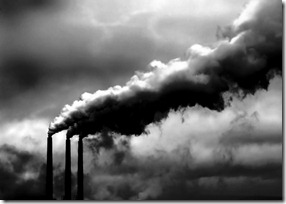The past decade has been the hottest on record, according to a report released in November. The World Meteorological Organization (WMO), the UN's weather agency, blamed rising levels of carbon dioxide in the atmosphere for a trend which has seen 13 of the 15 warmest years on record occur since 1997. According to WMO Secretary General Michel Jarraud "Concentrations of greenhouse gasses in the atmosphere have reached new highs. Our science is solid and it proves unequivocally that the world is warming and this warming is due to human activities." The WMO said 2011 would likely end as the 10th warmest year since record-keeping began in 1850. 2011 was influenced by an especially strong La Nina event,  a phenomenon driven by cooler than average sea temperatures in the Pacific and frequently tied to extreme conditions in Asia, Africa and South America. A La Nina – the opposite of an El Nino event – tends to have a cooling effect on average global temperatures. 2011 has been the hottest year in which a La Nina occurred. This year's La Nina was linked to flooding in Thailand, drought in eastern Africa and the southern United States, and recent incedibly high winds that damaged much of the west coast and intermountain west. Elsewhere, Arctic sea ice shrunk to its lowest volume on record this year– some 4,200 cubic kilometers. By surface area, ice dropped about 35 percent below the 1979-2000 average to arrive at its second-lowest point. The record-low was set in 2007. According to the report, “We are very rapidly approaching levels consistent with a 2-2.4 degree Centigrade rise in average global temperatures which scientists believe could trigger far reaching and irreversible changes in our Earth, biosphere and oceans." Concentrations of the main greenhouse gasses blamed for climate change were growing more rapidly than during the 1990s. Carbon dioxide rose by 2.3 parts per million (ppm) in the sapce of a year to reach 389 ppm in 2010. That compares to an annual average rise of 1.5 ppm during the 1990s.
a phenomenon driven by cooler than average sea temperatures in the Pacific and frequently tied to extreme conditions in Asia, Africa and South America. A La Nina – the opposite of an El Nino event – tends to have a cooling effect on average global temperatures. 2011 has been the hottest year in which a La Nina occurred. This year's La Nina was linked to flooding in Thailand, drought in eastern Africa and the southern United States, and recent incedibly high winds that damaged much of the west coast and intermountain west. Elsewhere, Arctic sea ice shrunk to its lowest volume on record this year– some 4,200 cubic kilometers. By surface area, ice dropped about 35 percent below the 1979-2000 average to arrive at its second-lowest point. The record-low was set in 2007. According to the report, “We are very rapidly approaching levels consistent with a 2-2.4 degree Centigrade rise in average global temperatures which scientists believe could trigger far reaching and irreversible changes in our Earth, biosphere and oceans." Concentrations of the main greenhouse gasses blamed for climate change were growing more rapidly than during the 1990s. Carbon dioxide rose by 2.3 parts per million (ppm) in the sapce of a year to reach 389 ppm in 2010. That compares to an annual average rise of 1.5 ppm during the 1990s.
December 11, 2011
Subscribe to:
Post Comments (Atom)


No comments:
Post a Comment